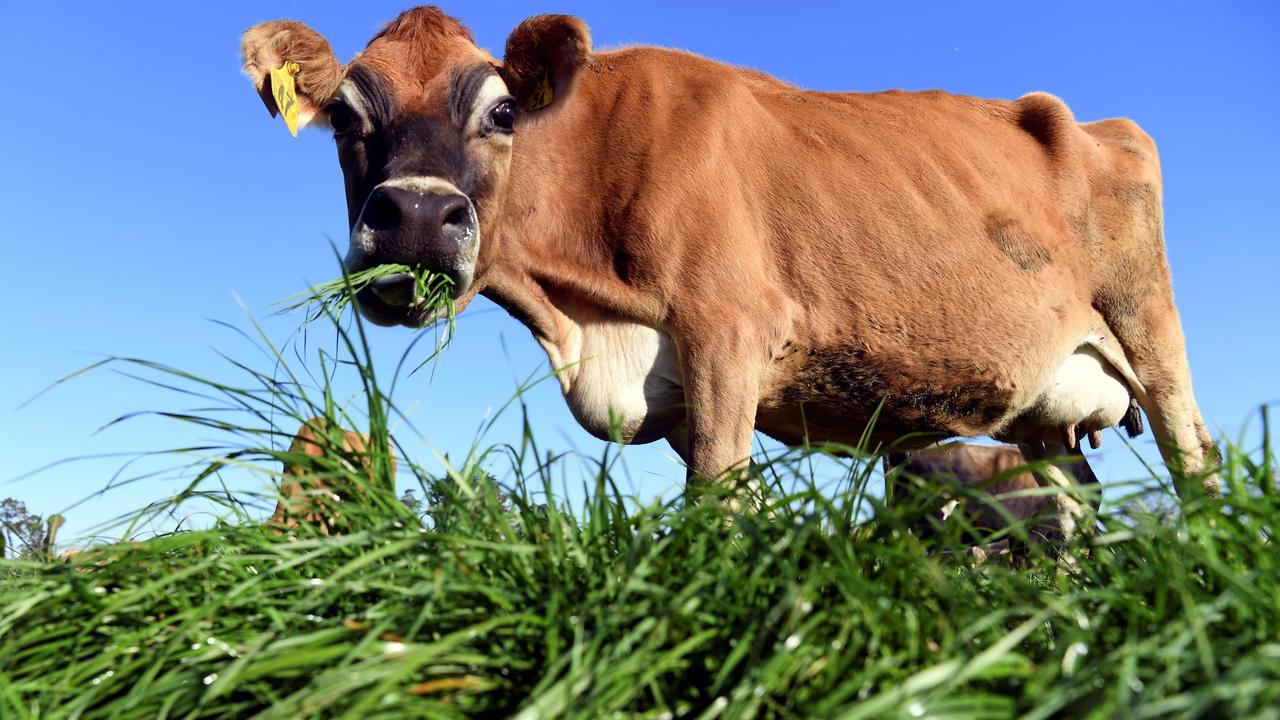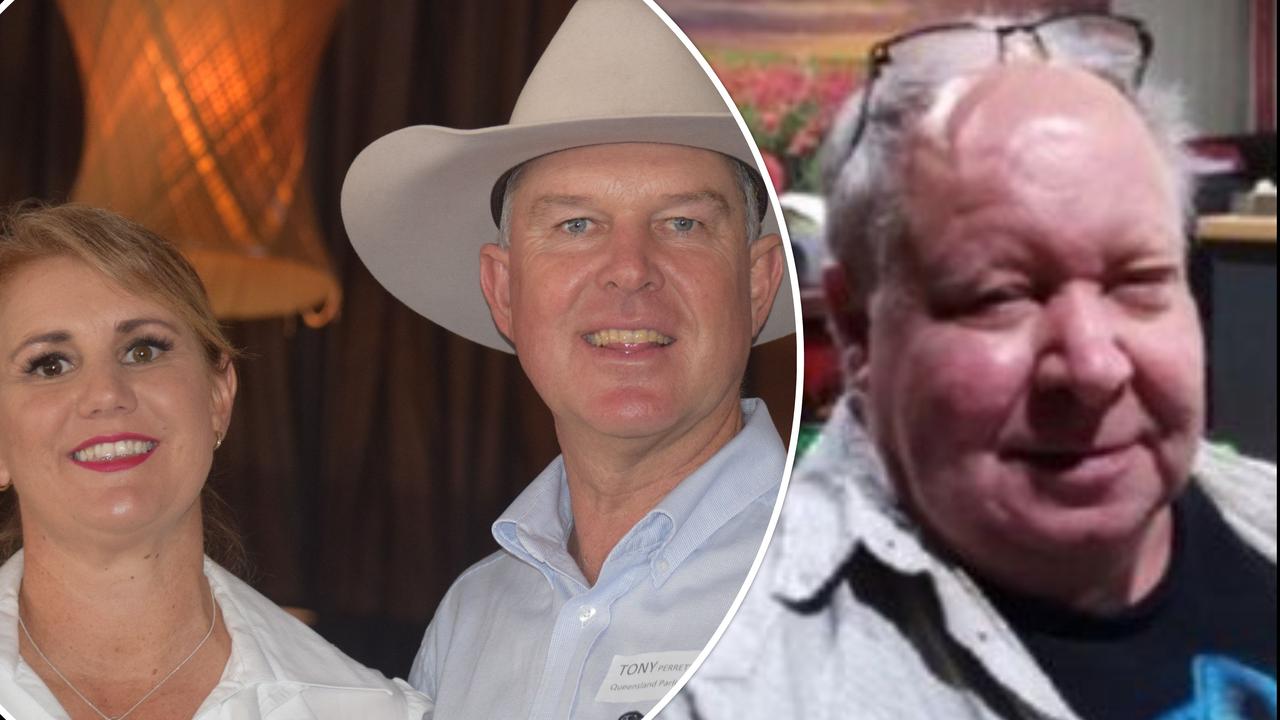Let’s tell the world #itstartswithag
With your help, we’re showing the world that our farmers are still out there working hard to feed the population amid the coronavirus crisis. Here’s the best of your #itstartswithag pictures and videos.
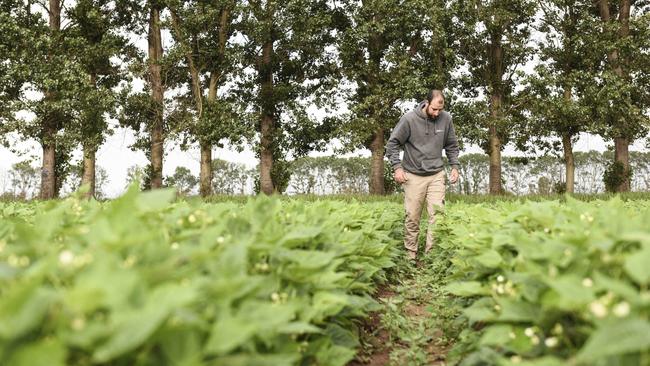
THERE may be food shortages on store shelves, but the farmers are still out there producing food.
They have not stopped, and will not stop, through this crisis.
Australia has one of the best food production systems in the world.
In fact our 85,000 farms produce enough food to feed 75 million people.
That’s three times the population of Australia.
And these are the farmers out there today producing that food.
We should all be incredibly proud – and thankful – for a farm system that produces safe, nutritious and affordable food each and every day.
The food is out there. And it is coming.
Because it starts with ag.
We want farmers to send a message to consumers that you are out there producing food.
Send us your pictures of what is happening on your farms via Facebook or by email to online@theweeklytimes.com.au
And post them on social media with #itstartswithag
Let’s tell the world that the food is coming – and that it starts with ag!
FARMERS CONTINUE ON
JASON COTTER
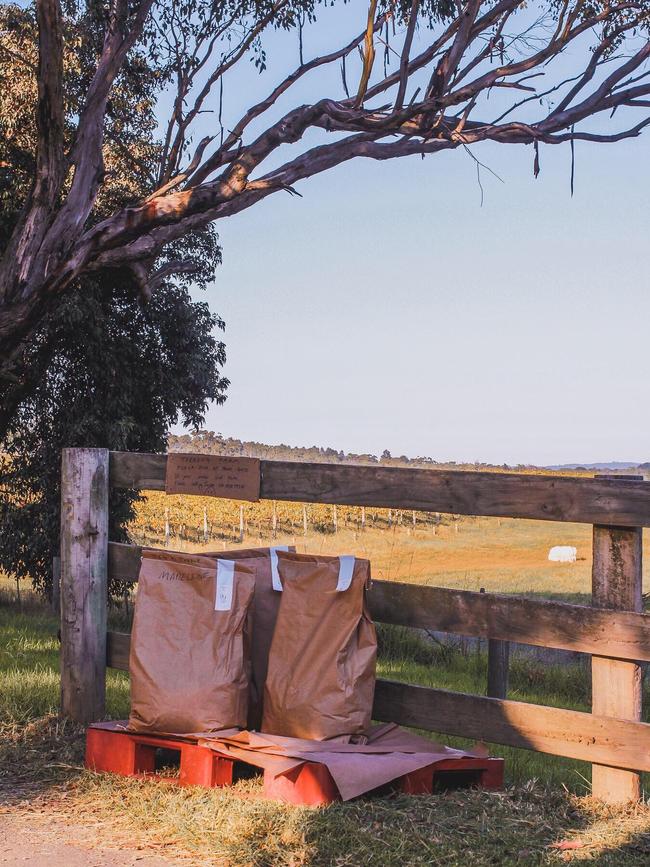
Tuerong, VIC
Jason Cotter and his family are working hard to produce locally grown wheat at Tuerong Farm on the Mornington Peninsula.
While many metropolitan supermarket shelves are wiped clean of flour and baking ingredients, The Weekly Times reporter Madeleine Stuchbery was able to source almost 13kg of Kittyhawk flour direct from the farm gate, stone milled at the farm.
It’s just one example of how Australia’s producers are working to keep the food chain moving during these challenging times.
FIONA MYERS
Woomargama, NSW
It’s a different kind of school at the moment for Fiona Wragge’s 11-year-old daughter Imogen, checking cows on Woomargama Station.
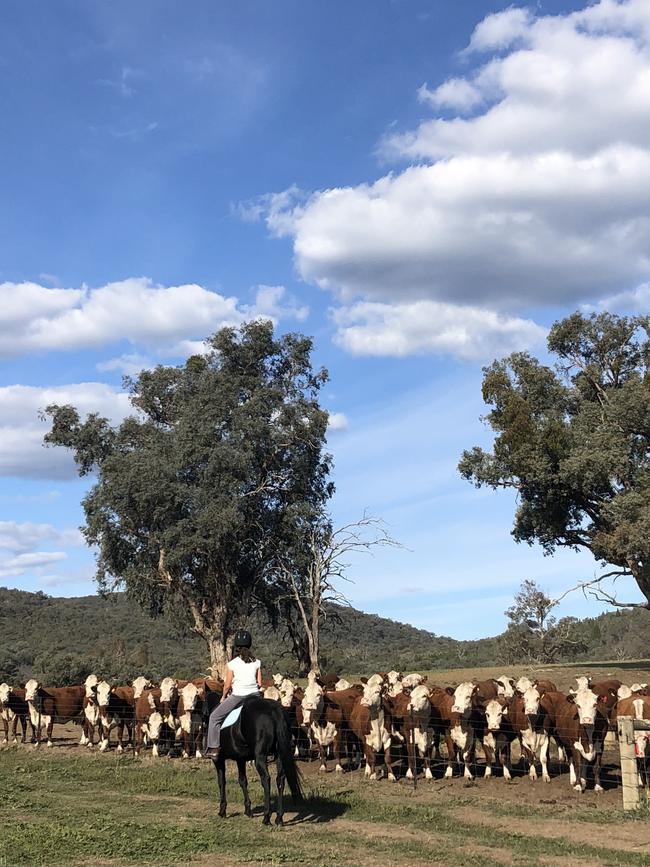
“It’s time to appreciate all we are so blessed to have in agriculture including space and fresh air, and horses and Herefords,” said Fiona.
Woomargama Station runs a herd of Poll Hereford cattle and fine wool Merino sheep aiming to produce high quality wool and beef.
M ORE FROM #ITSTARTSWITHAG
VIDEO: AUSSIE FARMER’S VIRAL MESSAGE ON FOOD SECURITY
CHRIS AND KIRSTY ROBERTS
Gerangamete, VIC
Cropping farmers Chris and Kirsty Roberts say social isolation is not a problem on their 810-hectare beef property in southwest Victoria.
They are currently sowing 100 hectares of annual rye grass to boost winter feed.
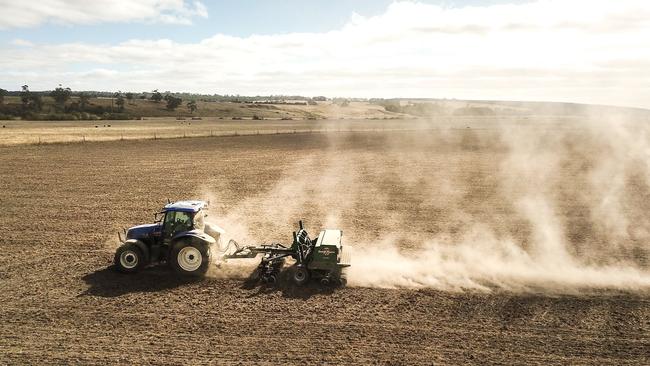
SUE FRANCIS
Dorrigo, NSW
Stud breeder Sue Francis, of Onward Murray Greys, says that little has changed on her farm as “normal day to day management is essentially a socially isolated job anyway”.
“One women, a dog or four, plenty of bovines, chooks, sheep – all of which could potentially infect me with any number of diseases; ringworm, cow pox, leptospirosis, Q fever, but not coronavirus.”
Sue was asked to bring the delivery of her cattle to the abattoir forward a month.
“I didn’t ask why. Maybe the selfish ones have created a demand for beef that is outstripping supply? Maybe it’s the uncertainty of what happens to the plant when a meatworker tests positive? Maybe border crossing restrictions, as some relevant factions of ag fight to be recognised as an essential service, is creating uncertainty? I don’t know. But yes, I could help.”
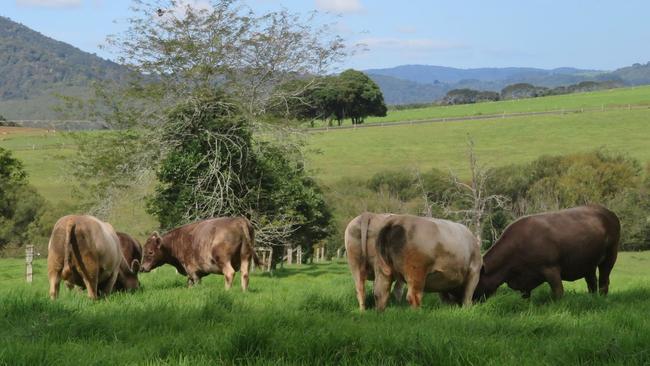
DARREN CORRIGAN
Devon Meadows, VIC
Darren Corrigan says it’s “all systems go” at Corrigan Produce Farms.
While the business was implementing new health measures, such as bolstered cleaning and enforcing social distancing, it’s team of 100-odd staff members were busy picking, packing, driving, spraying and selling at the wholesale market each day.
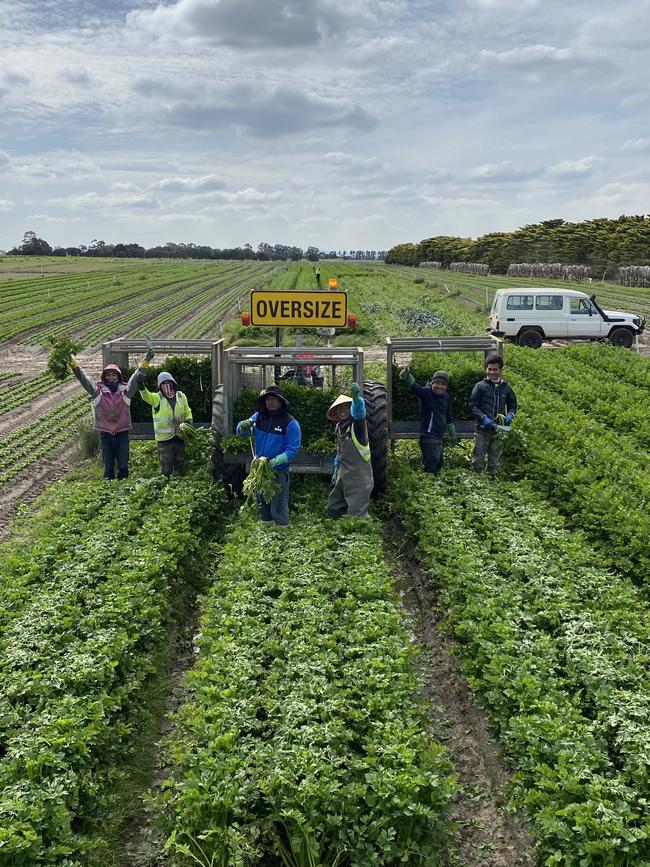
“It’s all systems go, nothing has changed. We had a bit of panic buying last week but things have settled down now. There’s no shortage other than those lines impacted by drought,” he said.
The family-owned fifth-generation business supplies Coles and Woolworths with leeks, cos lettuce, kale, celery and other vegetables, as well as exports to markets in South East Asia.
MICK ALLEN
Monbulk, VIC
Mick Allen says he will continue to farm until he’s “flat broke or the government puts me in lockdown”.
The Monbulk cut-flower grower, who runs Nood Blooms, is continuing to grow, cut and bunch in the hope shoppers continue to buy flowers for the home.
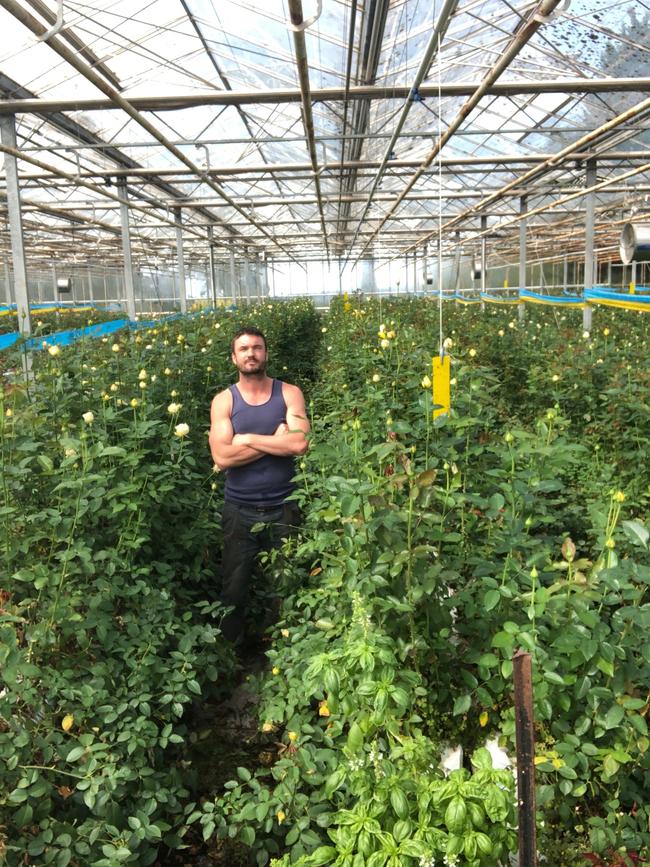
He grows blush-coloured rose varieties — including Aimee Lou, Luna and Mis Mae, as well as a range of David Austin’s — almost entirely for the wedding industry.
“I have to pick everyday so nothing changes on that front. I just hope people buy, or I thrown them out. But wholesalers have gone missing now,” he said.
He’s resting his hopes on the supermarkets to demand Australian-grown flowers to fill the void left by the wedding industry.
BRETT MATTHEWS
Nambrok, VIC
Dairy farmer Brett Matthews has recruited the help of his 11-year-old daughter Adeline at milking time.
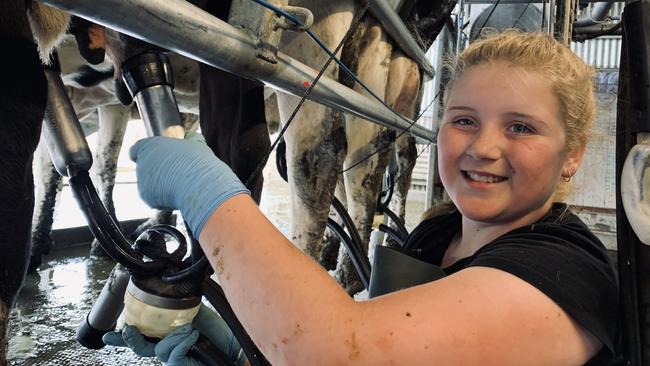
LAWSONS ANGUS
Yea, VIC
It was business as usual at the 50th annual stud bull sale at Lawsons Angus, Yea.
Measures were put in place to help protect visitors to the farm, such as handwashing facilities and a register for attendees.
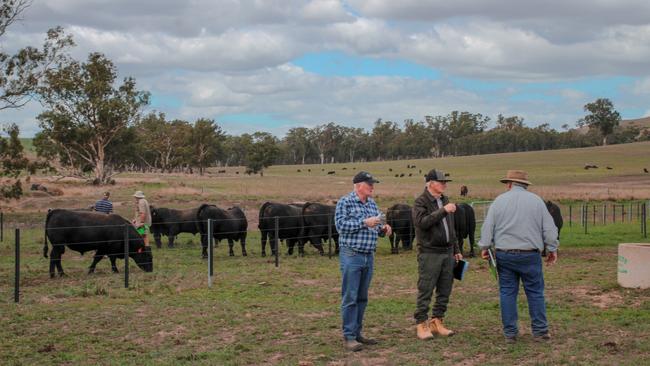
Stud principal Harry Lawson said he was impressed with the number of attendees at the sale.
“There’s more here than I expected earlier in the week,” Mr Lawson said.
A clearance rate of 100 per cent of bulls was the reward for the Lawson family for pushing ahead and holding their annual sale in the midst of the outbreak.
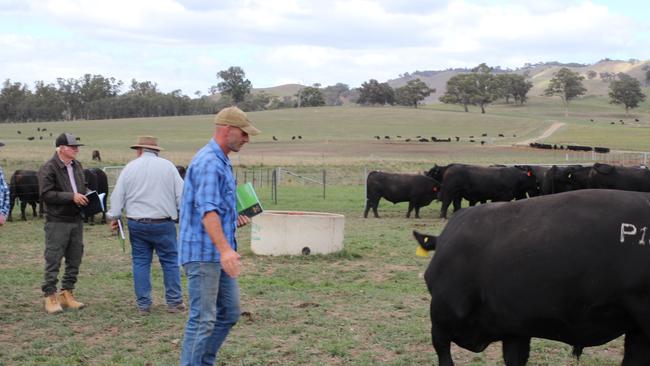
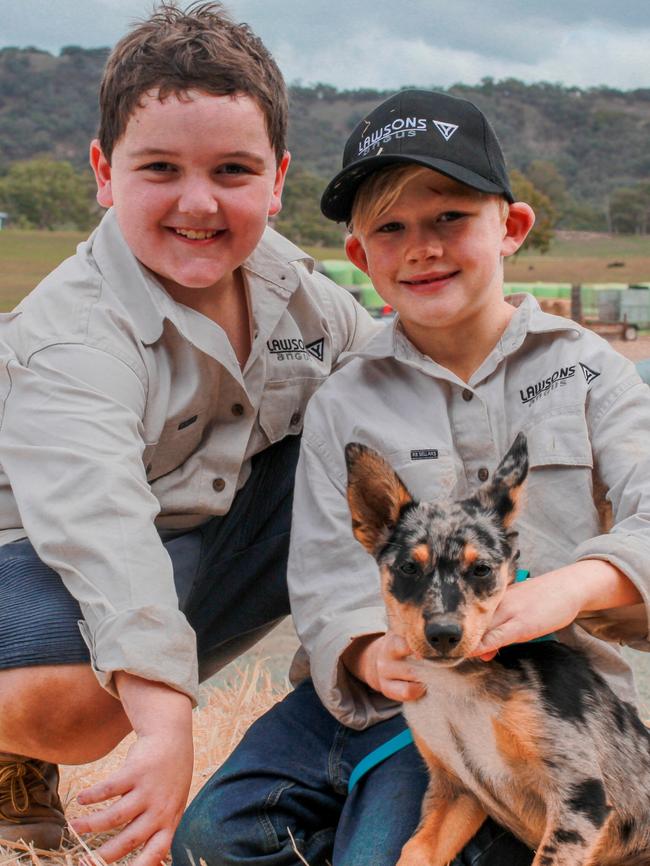
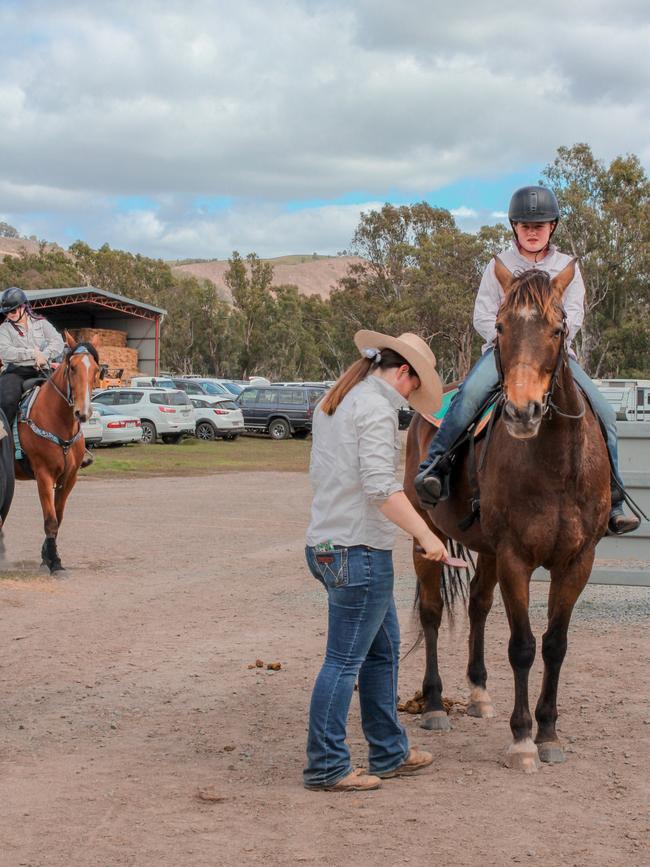
DAVID JOCHINKE
Murra Warra, VIC
Victorian Farmers Federation president David Jochinke says there’s plenty of food at his farm.
“We were fortunate to have a solid season in the Wimmera with excellent crop yields and sheep doing well on stubbles,” he said.
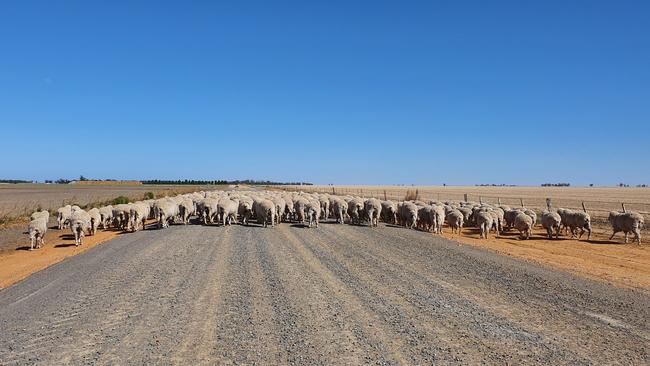
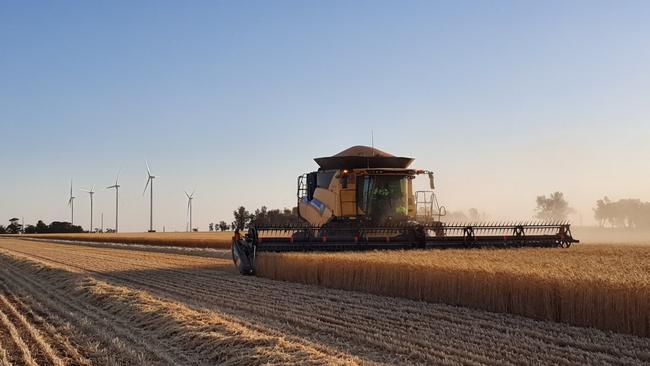
ANG BORZILLO
Gillieston, VIC
Ang Borzillo runs a mixed farming operation near Shepparton, growing gourmet tomatoes and producing fodder and grain.
He says farmers “cannot afford to give up, as the country needs the industry more than it ever has”.
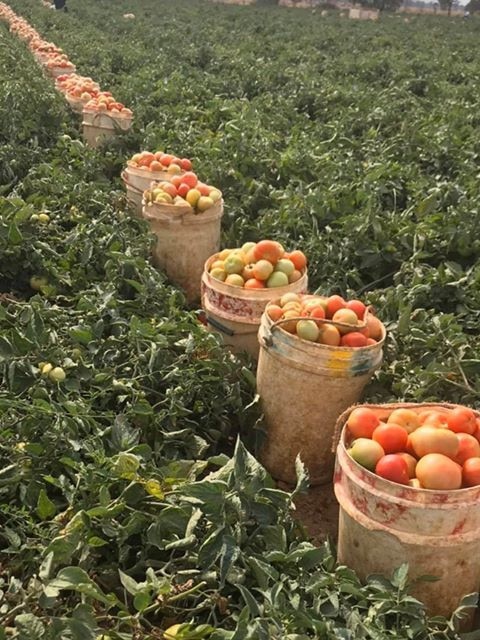
“In the current climate we face challenges on several fronts,” Mr Borzillo said.
“Firstly, the extreme hot weather with the ongoing drought conditions made it a real challenge to maintain quality and quantity in the summer.
“Now with the threat of coronavirus we must as an industry take every precaution possible to enable supply chains to be as free flowing as possible.”
KATE DOWLER
Hamilton, VIC
The Weekly Times reporter Kate Dowler had two truckloads of lambs leave her farm in a week.
“The supermarket we supply asked us to bring forward our delivery to help with the increased demand,” she said.
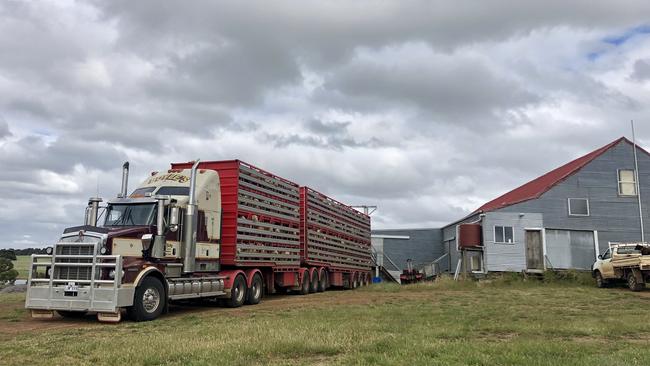
FIONA SIMSON
Liverpool Plains, NSW
National Farmers’ Federation president Fiona Simson says there’s plenty happening on her farm.
“Happy cows growing the next generation in their bellies, oats and wheat going into the ground for pasta and bread, and chickpeas next,” she said.
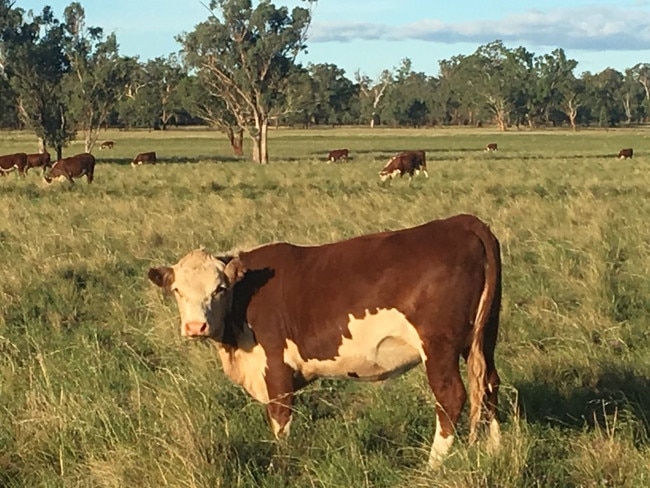
EMMA GERMANO
Mirboo North, VIC
Victorian Farmers Federation vice president and I Love Farms managing director Emma Germano took to twitter to share photos of the work going on at her farm and highlight that food policy matters to all of us.
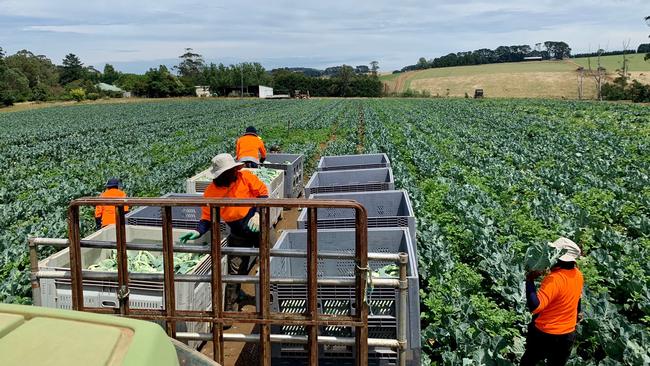
COBBLEDICK PRODUCE
Adelaide Hills, SA
It all starts here, says Cobbledick Produce, sharing a picture of something green sprouting out of the dark soil.
“Now we care and nourish this little seedling to bring people food,” the business wrote.
“We are sixth generation market gardeners that will continue to do what runs through this family’s blood – being a primary producer in Australia, growing veg.
“It’s what keeps food on our tables.
“Everyone must stay strong and we will get through these tough times.”
PAUL WILLIAMS
Coal River Valley, TAS
The Williams family’s Wobbly Boot Vineyard is in full swing in Tasmania and it’s a family affair.
“We have just commenced vintage in the Coal River Valley and are excited about continuing to put wine on the table from our organic grapes,” Mr Williams said.
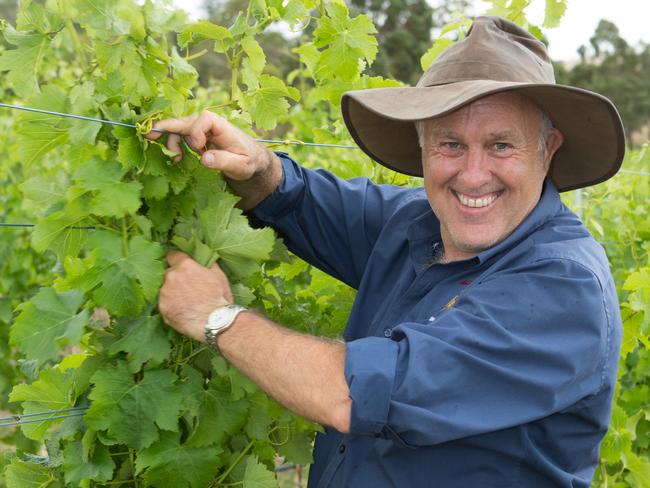
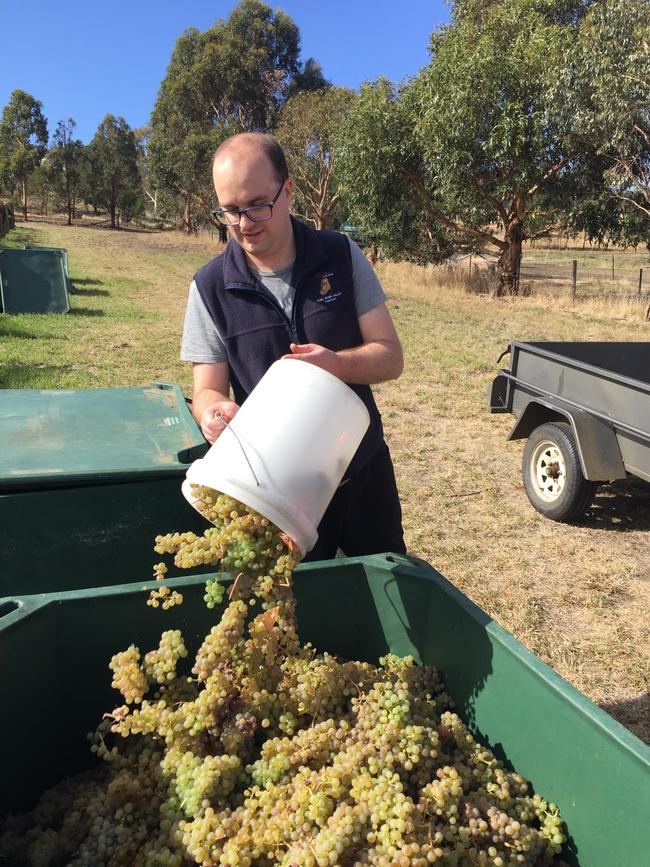
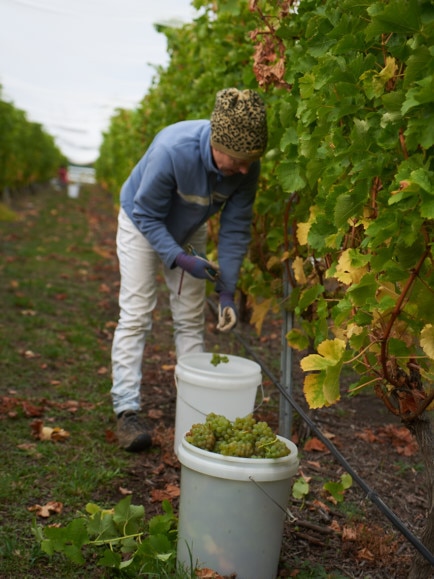
BEN CRIPPS
Northern agriculture region, WA
Farmer Ben Cripps, of Wepowie Ag, has shared a video “getting ready for this year’s wheat crop”.
MARTIN
Mia Mia, Victoria
Fourth-generation farmer Martin, known as Martinhavingacrack on Instagram, is “keeping tucker in the bellies of ewes that have now started lambing”.
“Good to have the excitement of lambing with all this doom and gloom around,” he said.
SAM HEAGNEY
Mungindi, NSW
While the rest of the world is “doomsday prepping”, farm manager Sam Heagney says he is preparing for planting.
“Fodder crops are going in this week to feed cattle and keep steaks on the supermarket shelves,” he said.
While the rest of the world is doomsday prepping, we’re prepping for planting.
— Sam Heagney (@samheagney) March 18, 2020
Fodder crops going in this week to feed cattle & keep steaks on the supermarket shelves #itstartswithag pic.twitter.com/JUddc89r0f
PETRA MASON
Farmer Petra Mason says she has continued to grow grass fed beef “through drought, flood and now the coronavirus”, sharing this photo on her farm.
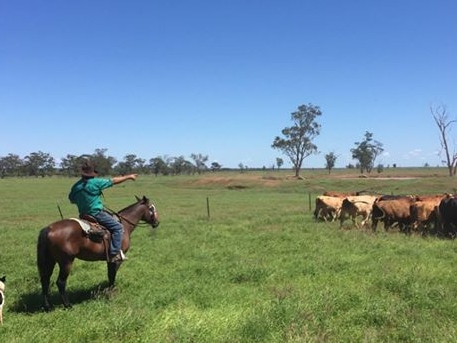
LYNDA SNOWDEN
Riverina, NSW
Lynda Snowden has shared a photo of her family farm to social media, showing how easy social distancing is on a farm.
CORONAVIRUS COVERAGE
The Weekly Times has established a guide to coronavirus cases in regional Victoria, including the locations of those who have been diagnosed and places you can get tested.
Some fruit and vegetable growers who usually supply Australia’s now disrupted food service sector have been forced to destroy healthy crops.
Australian dairy farmers have been assured there is “little risk” they will have to dump milk amid coronavirus lockdowns like farmers in the US and UK. Here’s how our situation compares.
One butcher sold two-months worth of meat in less than four days, while another sold 1.2 tonnes in a day and was been forced to mince whole rumps with an unprecedented demand for mince meat amid panic buying.
A collapse in consumer spending, mass cancellation of events and the forced closure of florists meant one flower business binned $40,000-$50,000 worth of flowers in one week.

